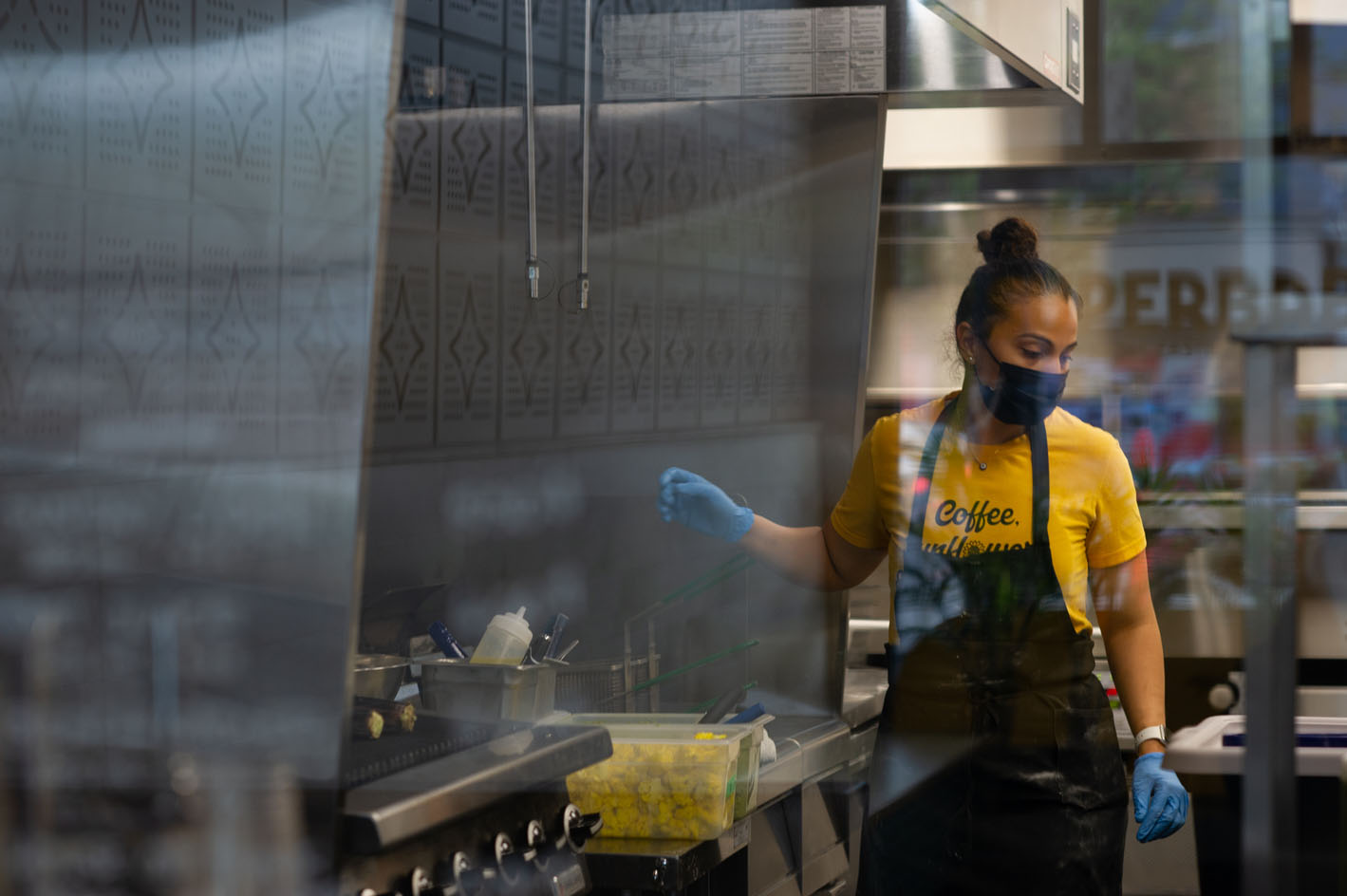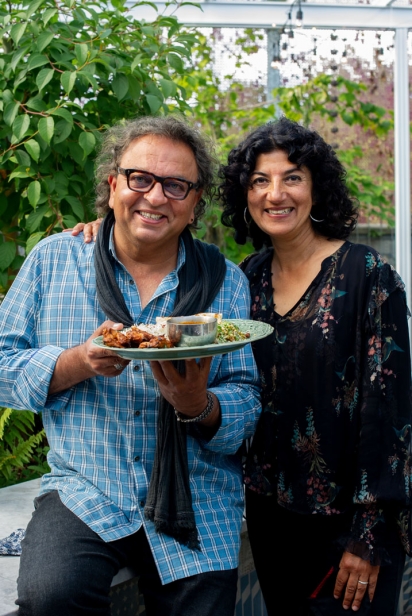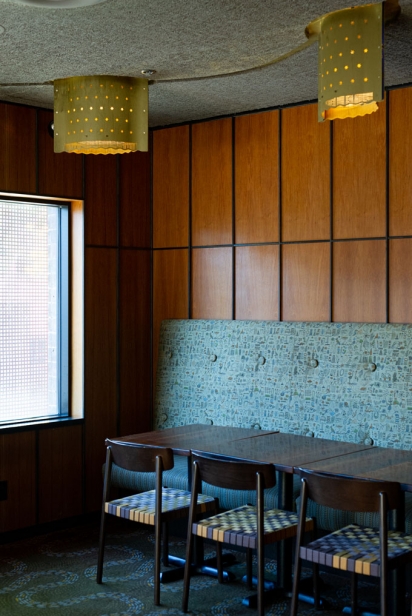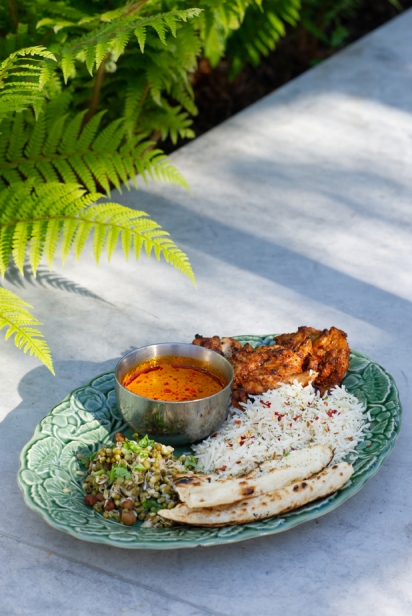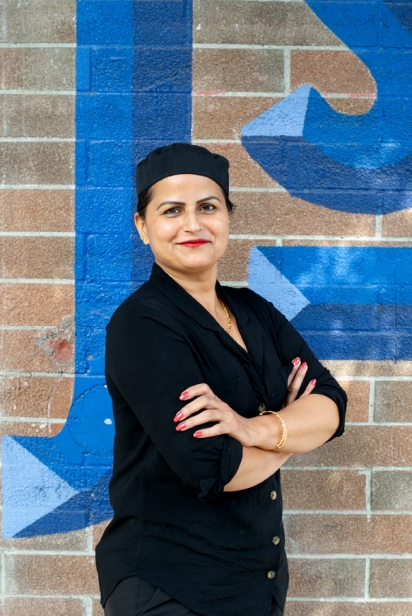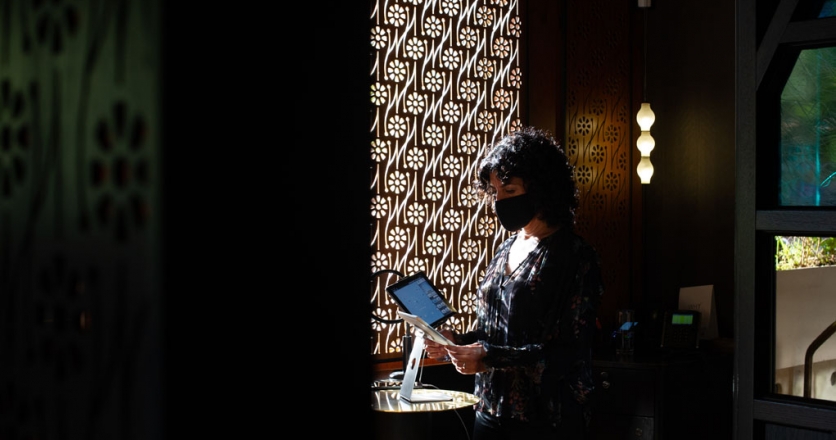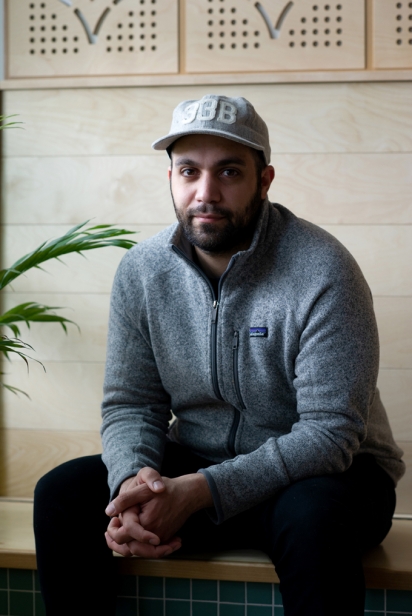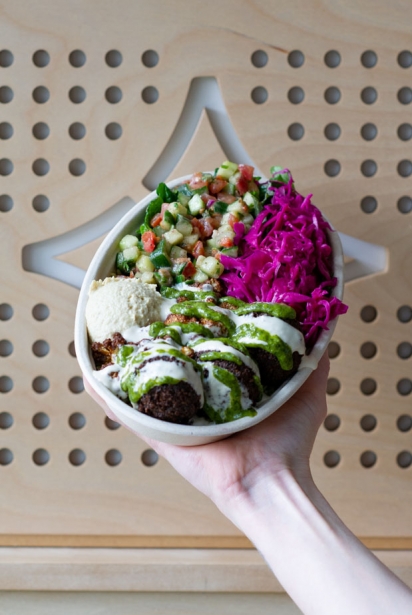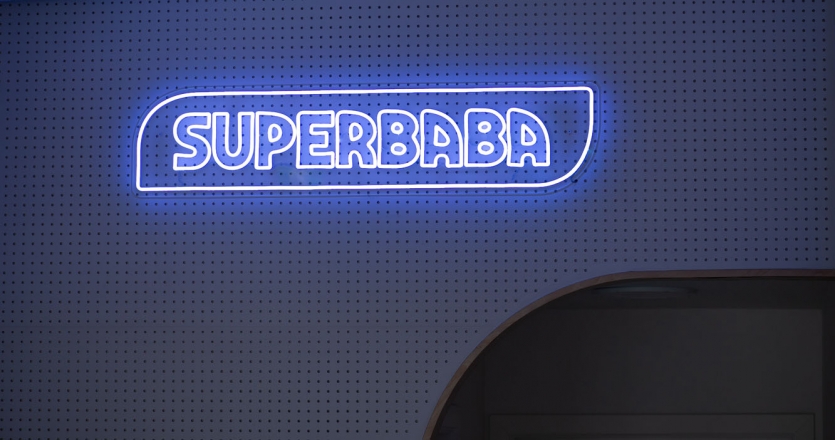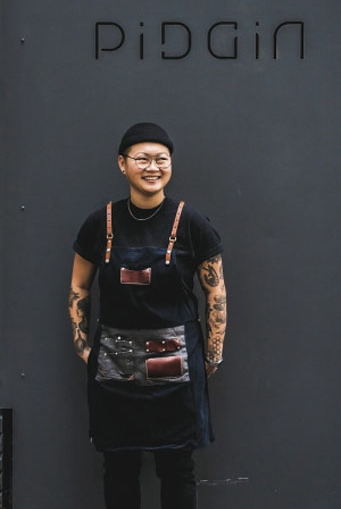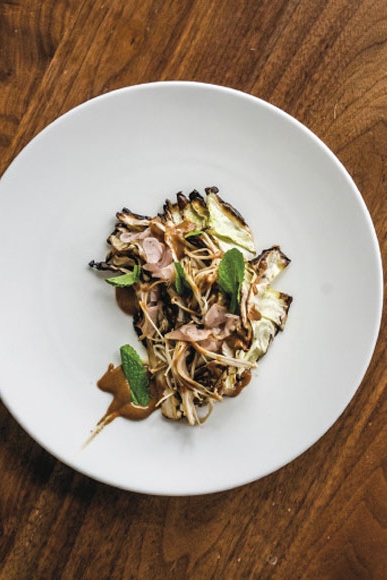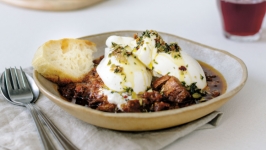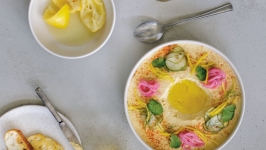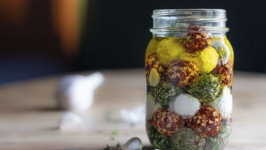Global Change Begins in the Kitchen
If there is a saving grace to this endless pandemic year, it’s that Vancouver’s restaurants are at long last dealing with the problems they’ve been glossing over with a smile and a complimentary amuse bouche.
Even before the pandemic hit, the industry was hurtling towards a reckoning. The cost of everything from rent to food to waste disposal kept going up in a city already so expensive a million dollars couldn’t buy a teardown in a bad neighbourhood. Consumers’ expectations kept rising, too. But those same consumers didn’t want to pay more for their Instagrammable grass-fed ribeye and Ocean Wise spot prawns. So margins kept getting tighter and tighter, and one independent restaurant after another began shutting its doors.
Then COVID hit and with it came that long-delayed reckoning.
The good news is that plenty of people have stepped up. They’ve started relief funds, dished out staff meals, launched delivery apps and spread the word about the latest industry pivots through organizations like Breaking Bread. The big associations got together to create a plan to keep doors open. The federal government offered wage subsidies and rent relief. The provincial government enacted several long-requested changes, such as the wholesale rate for liquor.
All of this has helped. But there are still sweeping systemic problems in the industry, from lack of representation to workplace abuse to its unsustainable business model. The fixes for those issues are going to have to come from within. These three Vancouver chefs are working hard to make that happen.
Meeru Dhalwala: Taking back her agency
After all these months of COVID restrictions, Meeru Dhalwala is seeing something she’s never seen before.
“For the first time in 26 years, I have begun to lose kitchen staff. I’m talking about long-time staff I have trained. And I’m not talking [about them going to] another restaurant job, I’m talking Amazon warehouse,” says the co-owner of Vij’s restaurant. “They have just lost faith in the industry.”
Dhalwala has always connected the local with the global, and never more so than now. In addition to managing the all-female kitchen staff, co-authoring a pair of cookbooks and creating the recipes for the modern-Indian restaurants co-owned with her ex-husband Vikram Vij, she is a passionate advocate for a host of causes including hunger, climate change and immigrant issues.
“My life outside of Vij’s is really busy. I feel full of hope when I see myself part of a bigger picture,” she says. “If I focus just too much on me, that can get really depressing.”
She sits on the advisory board for UBC’s Faculty of Land and Food Systems and dreams of teaching courses on the “planetary food plate” we all need to adopt. Meanwhile, she’s been working with the faculty to host webinars on regenerative agriculture, climate change and climate chaos, and the role of restaurants in all of that. “It is important to me that post-pandemic we independent restaurants flourish and serve what is important for our health and our planet and our culture,” she says.
Dhalwala also continues to do outreach with MOSAIC, a regis- tered charity that helps immigrants and refugees throughout B.C. She sits on the board of directors, and last winter, spearheaded a project called Feast for MOSAIC Families, which helped both recent immigrants and the restaurant industry. Consumers could buy a gift card from one of the participating restaurants, which received much-needed revenue; MOSAIC would then offer it to a family in need of a nice meal and a little pampering
After all, Dhalwala well remembers what it was like being a new immigrant herself. “New immigrants are not charity cases, we’re human beings with a lot of talent,” she says. “When my mom and dad arrived to the U.S. in 1969 [from India], it took them three years to get their bearings and every day they were so stressed. We never ate out. We ate lentils and rice every day, and my parents fought all the time. That’s where my passion comes from, because I remember what it was like.”
Global issues aside, Dhalwala is also looking inwards at her own business and how it needs to change, especially when it comes to the high cost of running a restaurant in the era of social media and a culture where the guest is always right.
“My labour cost is high. My food cost is high. We’ve taken on more debt,” she says. “I think the biggest problem is we spend before we have money in the bank. That’s my biggest lesson: We need a piggy bank.”
What really bothers her is how much of that debt went to trying to satisfy a clientele posting pictures to Instagram and complaints to Yelp.
“Our problem is we were spending money to be cool,” she says, noting that they had to borrow money to keep their décor and tableware trendy enough for the ’gram. “I think it would be nice post-pandemic if we take back our own agency. We shouldn’t be so ‘the customer is always right’ because we’re obsessed with social media.”
Once indoor dining re-opens and she can serve more than the 30 or so people that fit on the patio right now, she believes that guests are going to care less about the “bells and whistles” and more about the core cultural component of dining out. That means good food, thoughtfully sourced, carefully prepared and attentively served.
That is, if enough people keep working in the restaurant industry to make it viable. “I’m worried that when we re-open we won’t have staff to operate it,” she says. “Right now, I am just working really hard to keep our core staff going.”
“My restaurant is my culture. It’s my love. It is my passion,” she adds. “I’m just hoping there is a renaissance post-pandemic for all the independent restaurants — the restaurants that make Vancouver, Vancouver.”
Vij’s
3106 Cambie St., Vancouver, BC V5Z 2W2
vijs.ca | 604.736.6664 | @eatdrinkvijs
Dallah El Chami: Connecting the food community
Abdallah (known to all as Dallah) El Chami has no patience for anyone who wants to mistreat restaurant staff — and that includes their employers.
“The industry doesn’t take staff seriously, so staff don’t take their employment seriously,” says El Chami, the proprietor of Superbaba. “We talk about a labour shortage, but people are just changing jobs constantly to try to find that place that gives them balance.”
Although El Chami worked in restaurants around Vancouver as a teenager, food wasn’t his first career plan. Technology was. “But I always had my eye on the food world,” he says. He credits his family, who fled the civil war in Lebanon for Saudi Arabia, then came to Canada after the Gulf War broke out. “My family culture has always been about food. Lebanese culture is always about food.”
While he was still working for a tech startup, he began hosting a series of popup dinners known as The Dallah Menu, which featured thoughtfully updated Middle Eastern dishes. With the help of the team at Tacofino and Café Medina, he opened the first Superbaba location in Victoria, followed by a food truck in Vancouver, then the brick-and-mortar restaurant in Mount Pleasant last November. Despite the ongoing pandemic, it’s been busy since the doors opened, and now he’s planning more locations.
“It’s a really big deal as an Arab to feel that I’m introducing this food and it’s no longer a super-low-brow donair shop that you visit after you’ve been drinking,” he says.
Last spring, when COVID shut down the restaurants, all his expertise came together.
“There was a scramble to connect the food world when the pandemic started,” El Chami recalls. He started a Slack channel and invited owners and employees to join. Then he looked around for someone to start a restaurant relief fund like the one in Montreal. Turned out, that person was him, along with Tacofino’s Taylor Chobotiuk and Puneet Kochar. Together, they created the Vancouver Food and Beverage Community Relief Fund (vanfbc.com).
“Within one night, we built a website and people started offering donations,” El Chami says. “Mainly, we started it because employ- ers needed communication and staff needed financial help.”
The relief fund distributes relatively small amounts of money to those in need, just enough to put food on an under-employed cook’s table or pay an out-of-work server’s hydro bill. But it has revealed just how vulnerable so many in the hospitality industry truly are. That has compelled El Chami to become their voice. “I’m not the expert,” he insists. “I’m just giving my feedback about what I see.”
What he sees is not so much the headline-grabbing stories of abusive behaviour, but a lot of little indignities that make the industry harder for the people who work in it: bad scheduling, poor training, unpaid overtime and menus so difficult to execute they cause staff burnout.
A big issue lately is protecting staff from rude and aggressive customers, “especially now with COVID because we have so many of them.” Every day, he says, customers come in, outraged by having to wear a mask, or wait in line, or not being able to sit indoors. They take their frustrations out on staff, and that’s when El Chami steps in. “It’s crazy how extreme responses can be,” he says. “Staff go out of their way to tell me, ‘Thank you for having my back.’ ”
That’s why he thinks one of the biggest things that needs to change in hospitality is the idea that the customer is always right. “Hospitality doesn’t mean that you’re going to get whatever you want when you want it,” El Chami says. “I know we concentrate a lot on the harassment and abuse side, but there are other things we can tackle that make a big difference.”
Superbaba
2419 Main St., Vancouver, B.C.
eatsuperbaba.com | 604.423.5578 | @eatsuperbaba
Kym Nguyen: Representing the under-represented
These days, Kym Nguyen is as busy handling social media as they are cooking and creating new dishes. That’s thanks to the non-binary chef’s barrier-breaking appearance on Food Network’s Top Chef Canada.
“It’s amazing. I’ve been getting a huge following. More people are following me every day,” says the sous chef at Gastown’s Asian- inspired PiDGiN restaurant. “Some are chefs who really like my style of cooking. The Asian community are contacting me, which I didn’t expect. But most of my messages are from the Queer community, thanking me for representing myself and speaking up for people who can’t stand up for themselves.”
Nguyen, who is originally from London, started their career in architecture and design, with occasional gigs at gastropubs. They came to Canada with a girlfriend in 2010 and landed in Victoria, where they worked at a Rocky Mountain Chocolate Factory, decorating candy apples and doing sugar work. Their first serious job in restaurants was at chef Brad Long’s Café Belong in Toronto, where Nguyen learned everything from butchery to connecting with farmers and understanding where food really comes from.
“I didn’t come out as non-binary until I came to Vancouver. As a lesbian in the kitchen I never had a problem. I always got along with the guys because I had the same sense of humour. Kitchen humour,” Nguyen says. “Coming out as non-binary was harder because they didn’t understand how I was feeling inside, and how I see myself.”
Nguyen had uncomfortable exchanges with colleagues who wouldn’t even try to use their pronouns, which are proudly tattooed on their fingers. “When did it switch? Why did you change? I didn’t change,” Nguyen says. “It’s easier when you go into a new restaurant and tell everyone that’s how you identify.”
Eventually, Nguyen sent a group email to their co-workers at PiDGiN, explaining how they identify and use their pronouns. “I feel like that is a good way because you’re not singling anyone out,” they say. “It took me a long time to write the email, but it was very successful. I had to let my girlfriend read it first because I’m British and everything I say sounds really rude and blunt.”
When the Top Chef Canada opportunity came up, Nguyen was at first worried about the responsibility of representing the Queer community on national television. But that changed when people began reaching out.
“I had this one person who messaged me and said they were really touched by my story, but they weren’t ready to make the same steps,” Nguyen says. “It’s not something you can rush or push. It’s going to take time. He’ll know it’s right when it’s right for him, and he’ll eventually find a kitchen that is comfortable for him.”
After all, they say, “This is my story and my experience and how I go through things, and I can’t say how anybody else will go through things. I’m just going with it and doing what feels right. I’m just being myself. I knew I was going t have some reaction, but no way to the extent that I have been.”
PiDGin
350 Carrall St., Vancouver, B.C.
pidginvancouver.com | 604.620.9400 | @pidginyvr


